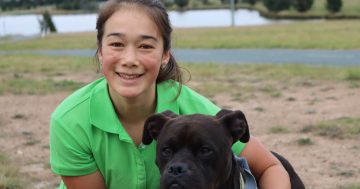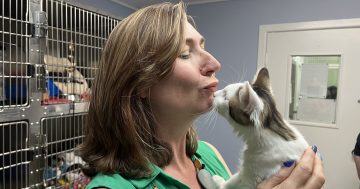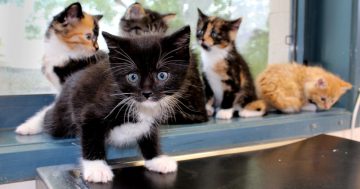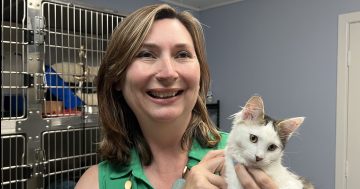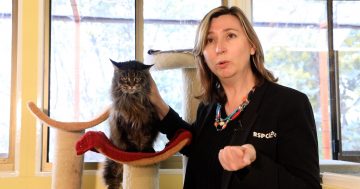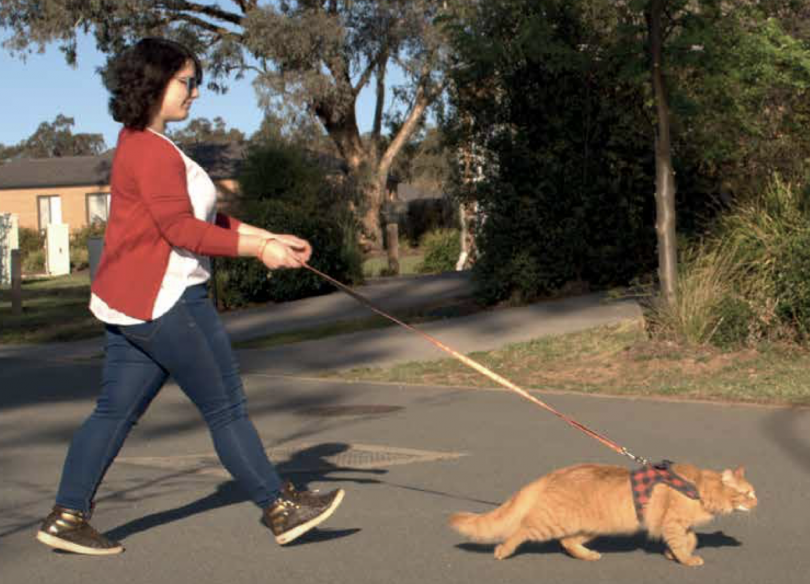
From 1 July, pet cats can be walked on leads in cat containment zones. Photo: ACT Government.
New cat containment laws to better protect native wildlife and cats themselves have been warmly welcomed by the RSPCA. They will come into effect from July.
Minister for Transport and City Services Chris Steel announced the Territory will also move away from the controversial ‘trap, neuter, release’ policy it currently employs to ‘trap, neuter, adopt’.
All cats will need to be registered from July this year, and any cats born after the first of that month will need to be ‘indoor’ contained pets. They will, however, be allowed to be taken out on leads for walks.
Mr Steel said the process of registering cats would be similar to the model in place for dog registration since 2021, with details updated annually. Existing cat owners will be able to register their cat for free from next month, while new owners after this date will pay a one-off fee. More details will be released shortly, along with an awareness and education campaign.
RSPCA ACT CEO Michelle Robertson said she was “very supportive” of the new laws.
“We promote cat containment and when cats are adopted from the RSPCA, we always ask adopters to contain them,” she explained.
Ms Robertson said this policy is better for native wildlife and the cats, too, as cats who roam free can often get into fights or injure themselves.
“Animals are very good at hiding when they are hurt, so by the time you realise something is wrong, it could be very severe … and that could lead to long-lasting consequences,” she said.
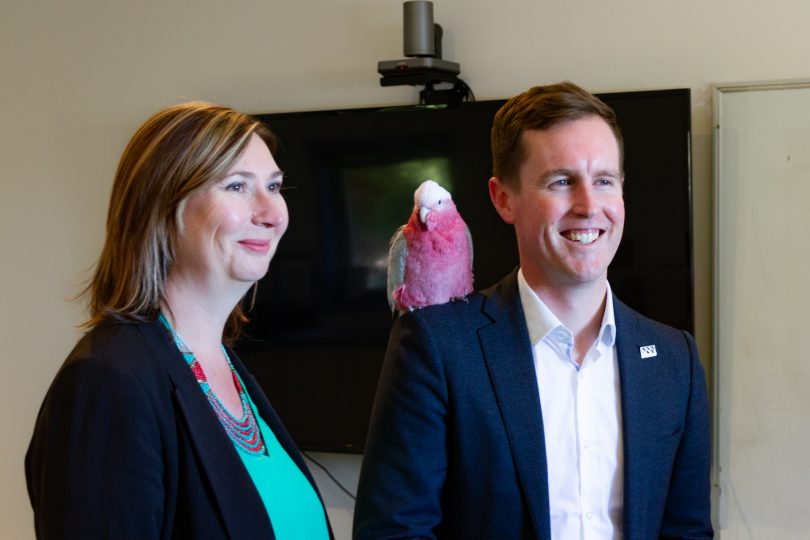
RSPCA ACT CEO Michelle Robertson and ACT Minister for City Services Chris Steel. Photo: James Coleman.
It is also hoped cat registration will make it easier to reunite lost cats with their families faster, which Ms Roberston also welcomed.
“[At the moment] sometimes we don’t even find the owner, or if we do, that can take a long time,” she said.
As previously foreshadowed, the ACT will take a ‘grandfathering’ approach to introduce cat containment so existing cats are not required to move to full containment, only new ones or those in new suburbs – each of which is declared a cat containment area as developed.
Mr Steel said he believed this approach struck the right balance.
From the same date, the ACT will move to a formal policy of ‘trap, neuter, adopt’ for unowned and street cats.
This was again welcome news for the RSPCA as the team can often be confronted with quite distressing scenes when street cats enter the shelter with untreated infections or illnesses.
“It’s not healthy for any domestic cats to not be loved and cared for,” Ms Robertson said. “We want every cat that can be to be rehomed and loved in a safe environment.”
Ms Robertson said she’s aware that difficult decisions will have to be made when street cats come in that cannot be rehomed.
“We take both their physical and mental health into account. Imagine, if the cat is too fearful of humans and cannot tolerate being around them, their life would have to be spent in a cage.
“We never take euthanasia decisions lightly, it’s a terrible thing to do, but we put our own feelings aside and ask what is in the best interest of the animal.”
The new laws contain new strict liability offences for pet owners who do not register their cats or keep them contained when they are required to be.
However, the ACT Government said it will take an educative approach to compliance during the transition to the new scheme to give pet owners and the Canberra community time to understand the new requirements.
Reforms to cat registration and containment were key elements of the ACT Cat Plan released last year. They passed the ACT Legislative Assembly with tripartisan support yesterday (6 April).












